DISASTER PREPARATION FOR THE LAZY AMONG US
- Details
- Category: Community News
- Published on Saturday, 24 August 2019 20:29
- Written by CHIN THAMMASAENGSRI
Dianne and I believe most people don't their earthquake prep because of the daunting list of to-do’s. She asked me to give you, our valued readers, the basic bottom line you absolutely need to have ready. As part of my CERT (California Emergency Response Team) duties, I have lectured neighborhoods to use the following ten steps as per the Los Angeles County Department of Public Health. They are simple and can be implemented relatively quickly. So please be safe rather than sorry. It doesn’t get easier than this. Do one thing a week. Let's Go!
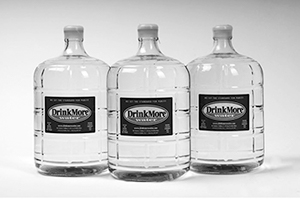 1. STORE A WEEK’S SUPPLY OF WATER.
1. STORE A WEEK’S SUPPLY OF WATER.The rule of thumb is that you store one gallon per person in your household, per day, for one week. Pets count as a person, so they get one gallon per day as well.
From Wiki, How to Store Water: "Consider bottled water. In areas that regulate bottled water, including the U.S. and E.U., sealed bottles of water are already sanitary and will stay good indefinitely. If you go this route, you do not need to worry about selecting appropriate containers or purifying the water. If stored properly, unopened, store-bought bottled water should stay good indefinitely, even if the bottle has an expiration date. Avoid containers made from hazardous plastics."
Here are some indoor sources of water:
- Water from your home’s water heater tank.
- Melted ice cubes made with water that was not contaminated.
- Water from your home’s toilet tank (not from the bowl), if it is clear and has not been chemically treated with toilet cleaners such as those that change the color of the water.
- Liquid from canned fruit and vegetables.
- Water from swimming pools and spas can be used for personal hygiene, cleaning, and related uses, but not for drinking.
- Store a bottle of unscented liquid household chlorine bleach (label should say it contains between 5-6% and 8.25% of sodium hypochlorite) to disinfect your water, if necessary, and to use for general cleaning and sanitizing.
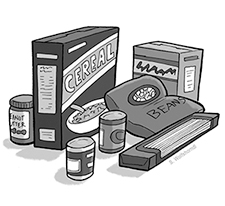 2. STORE A WEEK’S SUPPLY OF NON-PERISHABLE FOOD.
2. STORE A WEEK’S SUPPLY OF NON-PERISHABLE FOOD.Don't forget to include a manual (not electric) can opener. People tend to forget that one piece of important technology. Also note that food is mentioned second to water. Why? Because you can live longer without food than you can without water.
 3. HAVE READY CASH ON HAND ALONG WITH IMPORTANT DOCUMENTS.
3. HAVE READY CASH ON HAND ALONG WITH IMPORTANT DOCUMENTS.Make sure you have cash in small denominations for basic purchases. Though it is sad to say, some businesses/individuals do gouge people during disasters by being “unable to make change.” As far as the important papers go, take advantage of technology and scan or photograph deeds, insurance, medical cards and birth certificates, and send them to your own email account or save on a thumb drive carried in your to-go bag.
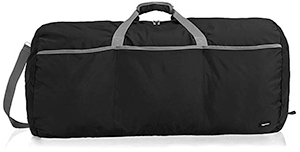 4. HAVE CLOTHES AT THE READY.
4. HAVE CLOTHES AT THE READY.Make sure you have sturdy shoes, shirts with long sleeves, and pants for you and your family. Before sending them off to Goodwill, sort through and use some of those old clothes you are no longer wearing. You’d be giving them a second life. You should always have slippers and housecoat by the bed and extra points for having a hard hat & gloves at easy access as well.
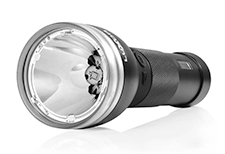 5. HAVE A FLASHLIGHT OR FLASHLIGHTS.
5. HAVE A FLASHLIGHT OR FLASHLIGHTS.and extra batteries. I think this one needs no explanation.
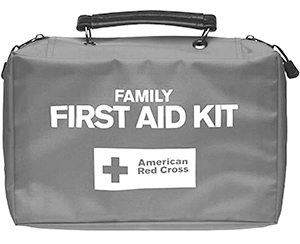 6. HAVE A BASIC FIRST AID KIT WITH MANUAL.
6. HAVE A BASIC FIRST AID KIT WITH MANUAL.
Members of CERT (the Community Emergency Response Team) carry these routinely because we know that we are our own first responders and, more than likely, we’ll be treating our own or someone else’s “boo-boos” (or worse) long before the fire department arrives. Search online and you will find kits from $8.95 to $47 to $66 to $480. You can order today and have a kit tomorrow!
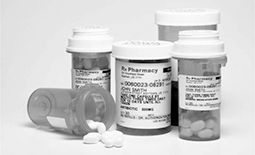 7. GET EXTRA DOSES OF PRESCRIPTION MEDICATIONS AND SUPPLIES.
7. GET EXTRA DOSES OF PRESCRIPTION MEDICATIONS AND SUPPLIES.Check with your doctor and see if you can get complimentary or extra doses you can store in your bag. As far as supplies, just buy one extra set of syringes, “G-Tubes,” or catheters that will carry you for at least a week.
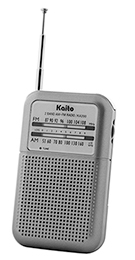 8. HAVE A PORTABLE STANDARD AM/FM RADIO with extra batteries.
8. HAVE A PORTABLE STANDARD AM/FM RADIO with extra batteries.Most major market media will come back online after a major event. They will satisfy the need for information. Though it is recommended you tune in to KNX 1070AM or KFI-AM 640, You can tune into any Los Angeles radio station. They will drop all standard programming and go to a news format. Search online and find anything from $10 and up. Order today and you can have within the week!
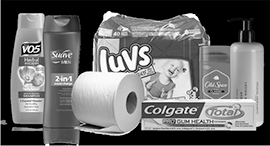 9. TOILETRIES ARE A MUST.
9. TOILETRIES ARE A MUST.These simple “luxuries” become more important during times like these. Ladies, make sure you have your feminine products in your Go Bags as well. Toilet paper, I have been told, is actually collateral you can bargain with to get other items you might need, so go COSTCO all the way on this.
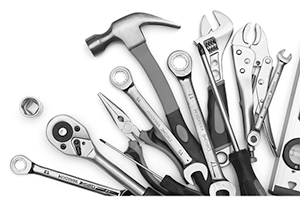 10. HAVE A STABLE OF TOOLS.
10. HAVE A STABLE OF TOOLS.Your stable should include adjustable wrenches, shovels, fire extinguishers, and even a whistle. A small cache of basic tools can help you fix your way out of some big situations.
I want to tag onto item #8 and say that you should also carry a FRS/GMRS or HAM radio for two-way communications. If you and your neighborhood can create a network, you can supply each other with valuable information. If you have a community block club with a budget, why not invest in some two way radios assigned to designated members? It may seem silly now, but knowing what’s going on even a block away may put your mind at ease. Please note that GMRS and HAM radio does require license. But according to worldgonesilent.com -
"The FCC allows anyone, whether or not they have a license, to use any frequency but, only in situations where life or property are in danger. Specifically, it says:
TITLE 47 CFR Part 97, Section 97.403: No provision of these rules prevents the use by an amateur station of any means of radio communication at its disposal to provide essential communication needs in connection with the immediate safety of human life and immediate protection of property when normal communication systems are not available."
An online search brought up radio options starting at $30.
DO ONE OR TWO OF THESE A WEEK AND WITHIN 2 -3 MONTHS YOU WILL BE PREPARED.
If you prepare for one disaster, you’re ready for anything. If, however, you are caught unprepared on the day a disaster happens, then nothing that’s written here will help you.
Chin Thammasaengsri is the Public Safety Liaison for the Mid City Neighborhood Council and serves as a member of the Community Emergency Response Team.
News Category
-
Community News
In The CD 10 Race, Only One Candidate Has Earned The Right To Lead The District
 reprinted from CityWatch LA October 07 2024ELECTION 2024 - When you know the story of how Heather...
reprinted from CityWatch LA October 07 2024ELECTION 2024 - When you know the story of how Heather...
-
Neighborhood Councils
NEIGHBORHOOD COUNCIL UPDATE
Local Neighborhood Councils are a proactive way to become involved in your relationship with the...
-
City News
Communities Preparing for Disaster
 by Bob Gelfand CitywatchLAGELFAND’S WORLD - In a week of sometimes depressing news, I would like...
by Bob Gelfand CitywatchLAGELFAND’S WORLD - In a week of sometimes depressing news, I would like...
-
Crime Reports
HOW TO TELL IF YOU ARE THE TARGET OF A PHONE SCAM
 Every year, thousands of people lose money to telephone scams — from a few dollars to their life...
Every year, thousands of people lose money to telephone scams — from a few dollars to their life...
-
Local Development
WHAT IS DESTINATION: PICO AND WHY IS IT DOING ALL THOSE NICE THINGS ON PICO?
 Destination: Pico is a community nonprofit working to make Pico Boulevard more walkable, vibrant,...
Destination: Pico is a community nonprofit working to make Pico Boulevard more walkable, vibrant,...
Today8
Yesterday10
Week47
Month255
All989175
Kubik-Rubik Joomla! Extensions
Yesterday10
Week47
Month255
All989175
Currently are 26 guests and no members online
Kubik-Rubik Joomla! Extensions



